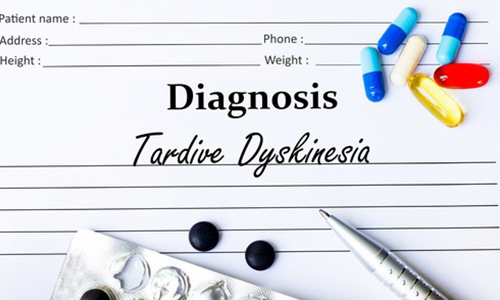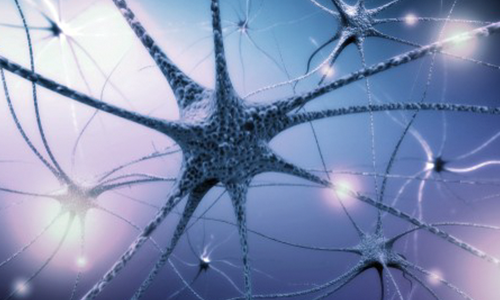Researchers Examine Effectiveness of VMAT2 Inhibitors in Treating Tardive Dyskinesia

Researchers of a study examined the effectiveness of vesicular monoamine transporter-2 (VMAT2) inhibitors and other agents in light of different theories regarding the development of tardive dyskinesia (TD).
Understanding Tardive Dyskinesia

The author of this article gives an overview of tardive dyskinesia (TD). TD can potentially be a permanent movement disorder that is caused by dopamine receptor blocking agents (DRBAs) in chronically using them. There are several risk factors associated with TD including certain genetic factors, female sex, African and Caucasian ethnicity, older age, illness duration along with cumulative dose of DRBA, and use of first-generation antipsychotics. Approximately 25% of psychiatric patients taking antipsychotic medication are estimated to have TD, representing a minority compared with the amount of people taking these medications. Prevention of TD is crucial, as stopping the medication causing TD does not always relieve the condition; however, there is no certain way to predict who will develop TD once starting DRBA use.
Impact of Genetic Factors in Tardive Dyskinesia

In a review, authors worked to summarize studies that have been completed in animal model experiments and clinical studies that are concentrated on genetic variations and their impact on the incidence of tardive dyskinesia (TD). The authors note that, in addition to the importance of drug- and dose-related factors in the development of TD, individual susceptibility and genetic predisposition are also crucial components to consider. Through their review, eight genes were recognized from preclinical findings that achieved considerable significance in one study or more.
Educational Activity on Tardive Dyskinesia

This educational material contains information surrounding the pathophysiology of tardive dyskinesia (TD). Through reading the material below, the goal of the paper is to have readers be able to summarize strategies in TD as well as recap ways to educate others on frequent etiologies of TD. This article aims to have its readers be able to recognize what to do in order to prevent TD from developing in addition to halting the progression of TD if the development has already begun.
How to Identify Tardive Dyskinesia: Learning the Movements

This video is an instructional guide to help providers and patients identify the facial movements that are most commonly associated with tardive dyskinesia (TD). The movements that patients with TD experience are slow, irregular, and change their shape. Through real time demonstrations, Dr Rajnish Mago shows multiple examples of the most common facial movements found in patients with TD including pouting, puckering, and smacking of the lips as well as several tongue, perioral, and jaw movements.
Tardive Dyskinesia: The Causes and Importance of Early Recognition

This video follows the real-life story of a patient with tardive dyskinesia (TD), while also providing an overview of the disease. TD is a late-onset movement disorder that has been linked to long-term use of antipsychotic medications. The physical symptoms can impact the entire body but are often most noticeable in the facial region. Challenges for providers are discussed, including how to weigh the use of antipsychotic therapies with the potential of TD in patients who have a history of medications, including therapies unrelated to mental health medications that are also dopamine blockers, and the importance of early symptom recognition by both patients and providers.
Diagnostic and Treatment Basics in TD: A Review

Tardive dyskinesia (TD) involves involuntary movements of the tongue, lips, face, trunk, and extremities, and it can be linked to considerable functional impairment and can be socially stigmatizing. Once a TD diagnosis is recognized, it is often irreversible. It is crucial for an accurate and early diagnosis, as the risk of TD permanence increases with time. Authors of this article urge clinicians to be educated on patients who are most at risk for TD and give appropriate clinical examination or use the Abnormal Involuntary Movement Scale. The authors also state that patients and their caregivers should be educated about the risks of TD with antipsychotics, as well as any alternatives, and to know the early signs of TD. The authors of this article provide a review of both the diagnostic and treatment basics of TD.
Tardive Dyskinesia and How the Nervous System Works

A video from the Depression and Bipolar Support Alliance discusses information about tardive dyskinesia (TD), as well as how the nervous system works. Some people do not have enough, too much, or irregular neurotransmitters to bind to receptors that can cause irregular signaling, possibly explaining the symptoms of mental health conditions including schizophrenia, bipolar disorder, and depression. In order to treat mental health conditions, antipsychotics are often given, and much of these therapies are dopamine-receptor blocking agents. More signaling can occur when dopamine is binding to hypersensitive dopamine receptors, having an impact on areas of the brain that impact motor function, causing TD.
Using “Extrapyramidal Symptoms” in Practice: Expert Perspective

In this article, John J. Miller, MD, editor-in-chief of Psychiatric Times™, gives insight on the diversity of movement disorders that may result from the use of dopamine-2 receptor blocking agents. He explains that because the diagnosis and treatment of different movement disorders can be considerably different, treating one of them can worsen another. Therefore, he urges healthcare professionals to stray from using the term extrapyramidal symptoms, or EPS, as he has always thought that EPS was too vague and nondescript of a term, as its definition consists of various potential movement disorder adverse effects. Dr. Miller explains that drifting from this term can help improve the diagnosis and treatment of different movement disorders that can be caused by the use of dopamine-2 receptor blocking agents. He gives examples to support his point-of-view and how the community has gained a better understanding of the connection between dopamine-2 receptor blocking agents and movement disorders.
An Overview of Extrapyramidal Side Effects

One of the most common adverse effects from dopamine-receptor blocking agents are drug-induced movement disorders, or extrapyramidal side effects (EPS). The below link walks through the cause, pathophysiology, and presentation of EPS. The authors also highlight the types of drugs that are known to cause EPS and a summary a both the symptoms and treatment of EPS. The role of the healthcare team in improving outcomes for patients who have EPS is also discussed.
